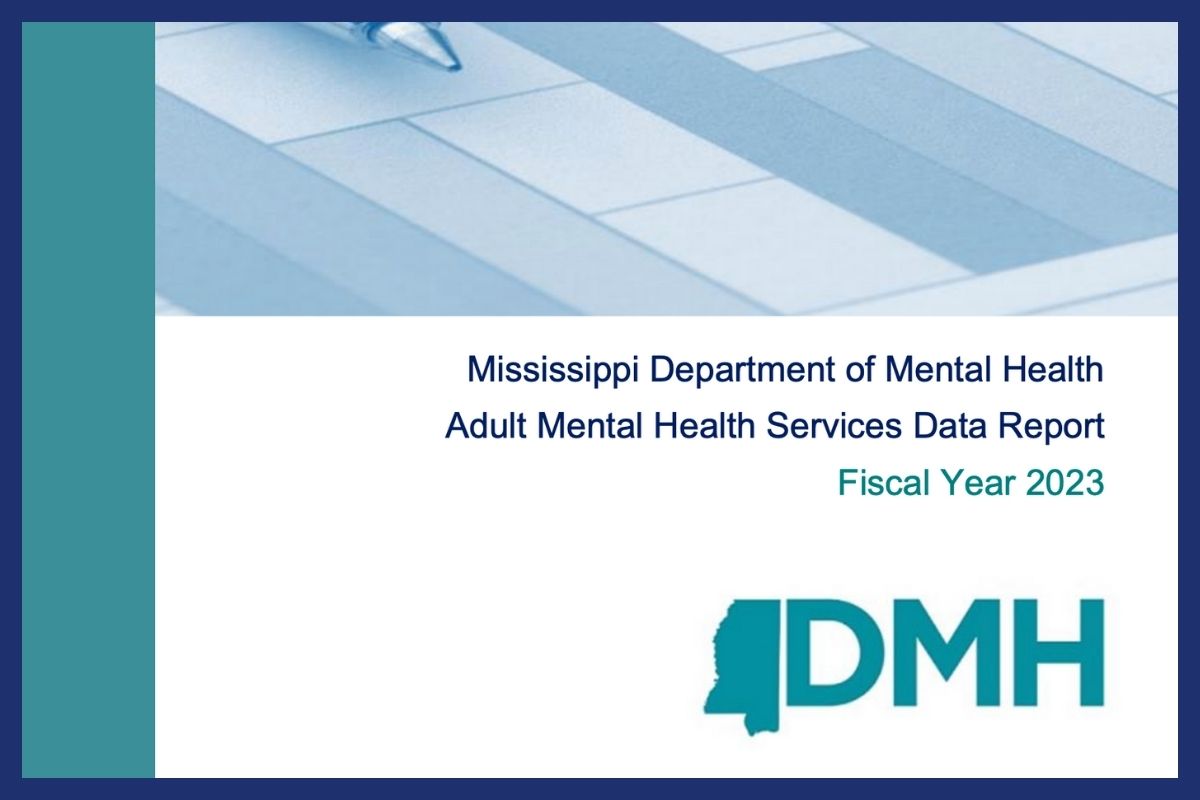On October 2, the Mississippi Department of Mental Health (DMH) released its data report for adult services for the fiscal year 2023. A fiscal year is the twelve-month funding cycle for an agency. The DMH’s fiscal year is from July 1 to June 30, so this report covers July 1, 2022, to June 30, 2023.
DMH reports progress on ensuring they accurately report data and don’t accidentally count a single service episode more than once.
The report covers data on these core services the DMH requires the community mental health centers (CMHCs) to provide:
✓ Mobile Crisis Response Teams
✓ Crisis Residential Services (also referred to as Crisis Stabilization Units or CSUs)
✓ Programs of Assertive Community Treatment Teams (PACT)
✓ Intensive Community Outreach and Recovery Teams (ICORT)
✓ Intensive Community Support Services (ICSS)
✓ Permanent Supported Housing
✓ Supported Employment
✓ Peer Support Services and
✓ Community Support Services (CSS)
The report focuses on the number of people who received each service, and this data is typically broken down by mental health regions and sometimes by county. The information does not include how people evaluated the services or if the services helped people meet their goals in the community. Although we didn’t look at the data in depth, we noticed a possible trend that CMHCs with a higher percentage of responding to crisis calls in person also seem to utilize emergency rooms and jails less often.
The report covers state hospital commitments and community crisis-stabilization unit admissions. Commitments to state hospitals decreased from 2774 to 2606. A little over a third of those admissions were from the same level of care (for example, from a private psychiatric hospital where insurance would no longer cover the stay). Crisis stabilization unit admissions increased from 3108 to 3402, which could explain why state hospital commitments decreased.
The number of people in jail waiting for a bed after being committed increased from 734 to 812 between 2022 and 2023, but the average length of time people in jail waited for a bed decreased. The report does not include people in jail who haven’t been charged with a crime or civilly committed.
You can read the 2023 report and the 2022 report as a basis for comparison.
The DMH was initially required to collect and report this data as a condition of being sued by the U.S. Justice Department. We commend the DMH for publishing this report, even though it successfully appealed the lawsuit that required it. We urge the DMH to report data on the children’s system publicly. We believe data—such as the number of children returning from out-of-home care who are referred to their local MAP teams and the types of choices families have in Wraparound—could improve the responsiveness of Mississippi’s system of care for children’s mental health. We are happy to work with the DMH and any of our other state agency partners on such efforts.

